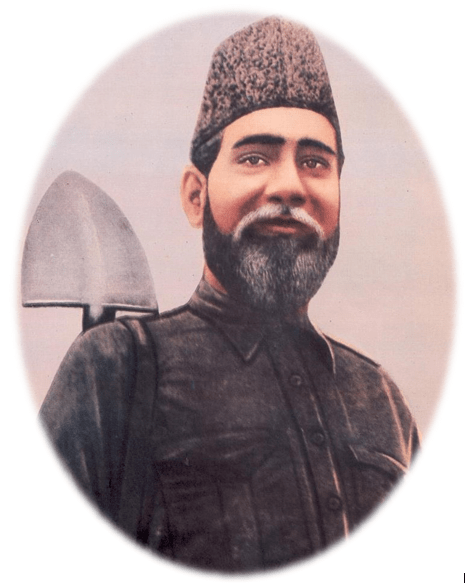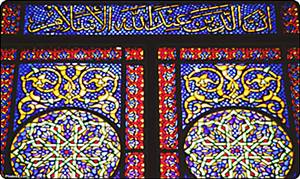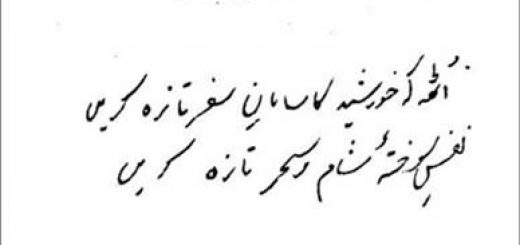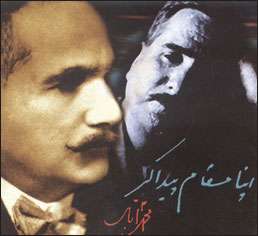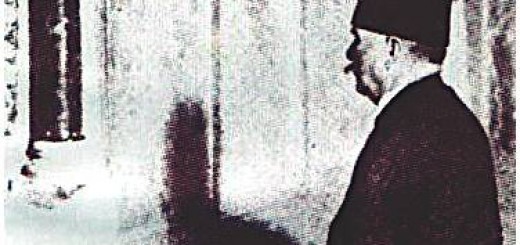Allama Mashriqi’s Life & Message to Humanity
Allama Mashriqi’s Life & Message to Humanity: A Tribute on Mashriqi’s 58th Death Anniversary
By Nasim Yousaf
“[Translation] Those who aspire to become leaders must first part with all their worldly
possessions in the name of God and then seek leadership.”
— Allama Inayatullah Khan Al-Mashriqi
Allama Mashriqi’s life (1888-1963) was a source of inspiration and guidance for the nation. For Mashriqi, his political career, glorious and remarkable as it was, was never the most valuable or momentous thing in his life. For him, it was simply a means of serving and directing his fellow countrymen towards the goal of independence. Mashriqi set an example for other leaders and the masses to follow. Below are a few of the ways in which Mashriqi guided other leaders, the nation, and the world:
- Mashriqi’s life served as a beacon for other leaders to follow. Mashriqi abandoned his life of luxury and comfort, thus guiding leaders of poor nations to lead a life of simplicity. According to Mashriqi, a leader must not live-in luxury while his nation lives in poverty. Mashriqi denounced any gap between the leaders and the masses, guiding the vanguards of the nation to remove barriers and treat them as equals.
- Mashriqi kept an open-door policy; anyone, regardless of social status could meet with him. In doing this, Mashriqi taught leaders to remain accessible.
- Many of the appointment holders in the Khaksar Tehrik were commoners. Mashriqi guided the nation that power is not only for the privileged and should be shared with ordinary people.
- Mashriqi upheld the same rules for himself as for his followers, showing the nation that no one is above the law.
- Mashriqi could not be bought with titles or money. Mashriqi “refused many lucrative offers” (The Civil & Military Gazette 1963 Aug. 29) and high positions, including British offers of Ambassadorship and Knighthood (Title of Sir) and the Federal Ministry in the Pakistan Government. “ . . . the [British] Government of India offered him knighthood . . . but in deference to his patriotic sentiments he declined it” (Morning News [Karachi] 1963 Aug. 29). During the 1950s, a diplomat of a superpower also offered him a lucrative amount, but instead of taking the offer, Mashriqi informed the media. According to the daily Kohistan (Rawalpindi), the amount offered was “Rs. 1 1/2 lacs [Pakistani Rupees 150,000] a year.” These titles and positions would have brought power, wealth, and social elevation. By not accepting these positions, Mashriqi taught the nation that these things are immaterial.
- Mashriqi spent many years in jail in British India and Pakistan, where he was tortured and mistreated. In British India, even his son was murdered during the freedom movement. Mashriqi displayed great dedication to the cause by boldly facing every atrocity. Thus, he showed the nation that one must not deviate from a goal, no matter what the obstacles.
- Mashriqi was one of the most educated political leaders of his time, yet he was also extremely humble. He thus set an example for the privileged to remain humble. For example, after forming the Khaksar Movement, he never rode in his Renault car, which he had purchased during his trip to Europe in 1926. Instead of traveling in luxury cars, he used to either walk, take public transport such as a bus or tonga, or ride in a third-class compartment on a train. During Khaksar Camps, he used to sleep in a tent and his office was either open air or in a tent. Mashriqi also had no personal assistant or secretary. He typed his own letters and cleaned his own office. His house had modest furniture and no luxury items (such as an air conditioner). Mashriqi did not like hero-ship, red-carpet welcomes, and VIP treatment. And all his children went to public schools.
- Mashriqi mainly wrote his books in Urdu (the language of millions in Pakistan and India). His book Tazkirah was nominated for the Nobel Prize in Literature. The Nobel Prize Committee requested him to translate the book in a European language. He refused by saying that if a language of millions was not acceptable to the committee, then he had no desire to receive the award. Additionally, he never lobbied to get his book nominated. Thus, he taught the nation that these material honors and awards do not matter and also to take pride in their own language and culture.
- Mashriqi had millions of followers and supporters. He attained such a large following as a result of his dedication and selfless service to the cause. His roots were very strong in the masses. He proved to the nation that a movement with devoted followers could be organized without any financial assistance from outside sources or blessings from the developed world. He earned the love and respect of the people by genuinely loving them and working for their welfare. Khaksars had “unflinching loyalty and devotion to their leader and the cause.” He “will go down in history for his . . . ability to inspire loyalty among his followers . . .” (The Civil & Military Gazette 1963 Aug. 29).
- Mashriqi removed distinctions between the rich and the poor through the Khaksar Tehrik
- Mashriqi brought discipline, simplicity, and honesty, among his followers, regardless of their social status.
- By making the spade a part of the Khaksar uniform, Mashriqi brought dignity to labor and the common class of society.
- By making the word “Akhuwat” (brotherhood) a part of the Khaksar Tehrik’s flag and uniform, he preached brotherhood and fraternity.
- By allowing non-Muslims to join the Khaksar Tehrik, Mashriqi showed that one must respect and give equal rights to all humans, including those of other religions (as per Islamic teachings).
- By including women in the Khaksar Tehrik, he not only showed respect for them, but also encouraged their equal rights and participation in the building of the nation.
- By making community service a part of every Khaksar’s duties, he showed the nation that community service should be a part of the life of every member of society and that it is an important component in building a nation.
- By not naming any of his sons or close relatives as a successor to his Khaksar Tehrik, he told the nation that political parties are not personal properties that should be taken over by the next of kin.
- By turning down financial support from the nations in power, he turned away a form of bribery and guided the leaders of the under-developed world to refrain from being sold.
- By creating a trust of his wealth, he taught the nation that everything that belongs to a leader is for the nation. By granting scholarships to brilliant and needy students from the trust, he emphasized the importance of education and providing equal opportunity to everyone.
- Even when his life was at stake, Mashriqi upheld his ideals. Even when he was on his deathbed, he refused public money for his personal treatment abroad from the President of Pakistan (Mohammad Ayub Khan). He guided the nation that public funds must not be used for personal gain.
- Allama Mashriqi was a man of integrity and would not accept favors. If any host served him food, he always paid for it. For example, in 1939, Mashriqi was at a Khaksar Camp in Qarol Bagh, Delhi. Mohammad Ali Jinnah, Sir Ziauddin Ahmed, and Liaquat Ali Khan came to discuss political matters with Mashriqi. During the conversation, Jinnah offered Mashriqi a cigarette. Mashriqi politely accepted it, however, he reimbursed Jinnah for the cigarette immediately. Jinnah was surprised at this unusual deed; as a normal courtesy, Jinnah attempted to return the money, but Mashriqi stated: “A Khaksar must not deviate in matters of principle.” Jinnah was highly impressed by Mashriqi’s integrity and noble message; Jinnah accepted the payment. As another example, in 1937, G.M. Syed had joined Mashriqi’s Khaksar Movement. Thereafter, upon the invitation of G.M. Syed, Mashriqi stayed at Syed’s house, which was known as Hyder Manzil. However, Mashriqi (per his tenet) paid for the expenses incurred by Syed during Mashriqi’s stay. The historic Hyder Manzil (opposite Patel Park, later Nishtar Park) was demolished on July 03, 2019.
- Mashriqi was accountable. He did not keep any difference between himself and the Khaksars. Like any Khaksar, he was accountable and also punishable. For example, in Quetta, Mashriqi was marching with fellow Khaksars, but went out of step. The Salar who was conducting the march observed that Mashriqi was out of step. He ordered the contingent to halt. Everyone immediately stopped. He told Mashriqi to step out of the formation and told him what his mistake was! The Salar punished Mashriqi as per the rules. Mashriqi took the punishment graciously. Such standards were set by the great Allama.
- Mashriqi believed in conducting principled politics. He stood for an undivided India and never changed his stance, even at the risk of his life. During his political career, he was attacked multiple times, even “stabbed” (The Canberra Times, June 11, 1947), yet he stood firm on his stand. While in Vellore Central Jail (India), he was asked to disband the Khaksar Movement or die in prison; he stood firm and refused to disband the Movement.
- All his life, Mashriqi worked for uplifting the poor. He did not maintain any distance between himself and those less fortunate. He regularly engaged with the poor class and recognized the power of the impoverished by adopting the spade as a symbol of the Khaksar Movement. With regards to elections, he suggested having separate constituencies for the poor and wanted them as parliamentarians. He wrote in his book entitled Hareem-e-Ghaib: “[Translated from Urdu] Because the poor are the majority everywhere in the world and the capitalists [wealthy] are fewer in numbers, the concept of having a capitalist ruling the Government in a democracy is unimaginable, provided that the wealthy and the poor have equal voting power.”
- He believed in emancipation, equal participation, and education of women. Like his sons, he gave equal opportunity to his daughters to get an education. His daughters and other women were part of the Khaksar Movement and during the freedom movement took part in its activities.
- He lived simply, wearing basic clothes made from cheap material. His daughters got married in very simple ceremonies with few people in attendance; guests were provided ordinary meals. Similarly, when various dignitaries (from Knighthood holders to Nawabs to high officials) visited him, no grand welcome or reception was arranged and no fancy food was served. The same treatment was accorded to foreign dignitaries and diplomats. For example, a Khaksar leader (Sher Zaman) wrote in his book that Lord Barren from England, who visited Mashriqi with his wife, was also served tea in a plain cup. The simple way of life and equal treatment for all reflected Mashriqi’s humble style, an example for others to follow.
Mashriqi died on August 27, 1963. I witnessed his funeral firsthand as a young boy in Pakistan. As I was standing on the vehicle that carried the respected Mashriqi’s body, I remember seeing a sea of people. The masses of people stretched as far as my eyes could see. I have never witnessed such a large funeral. The roads along the funeral procession were jam packed. Since there was no room left, people climbed trees, stood on balconies, and clung to electric poles (risking their lives) to take a last glimpse of their beloved leader. I saw heart-breaking scenes of people crying hysterically or sobbing; some people were beating their chests with grief and many fell unconscious. According to the Khaksar circle, over one million people attended his funeral, and it was the largest in the history of the Indian sub-continent. However, the newspapers only reported the figure authorized by the Government of Pakistan. A 101 gun-salute was accorded to him at the time of his burial.
We live in a world that is too often divisive and where corruption, injustice, greed, materialism, hunger, selfishness, lack of integrity, exploitation, and disparity are all too common. Mashriqi’s life provides a source of guidance to humanity. A better world is attainable with a change of heart.
NOTE: Nasim Yousaf is a biographer and grandson of Allama Mashriqi. Yousaf’s works have been published in peer-reviewed encyclopedias and academic journals (including at Harvard University and by Springer of Europe) and he has presented papers at academic conferences, including at Cornell University. He requests the Government of Bangladesh, India, Pakistan (and the UK) to declassify Mashriqi and the Khaksar Movement’s confiscated documents; he recommends formation of an independent commission to find the truth behind the partition of India, as history being taught in these countries is highly fabricated
Copyright © 2021 Nasim Yousaf

